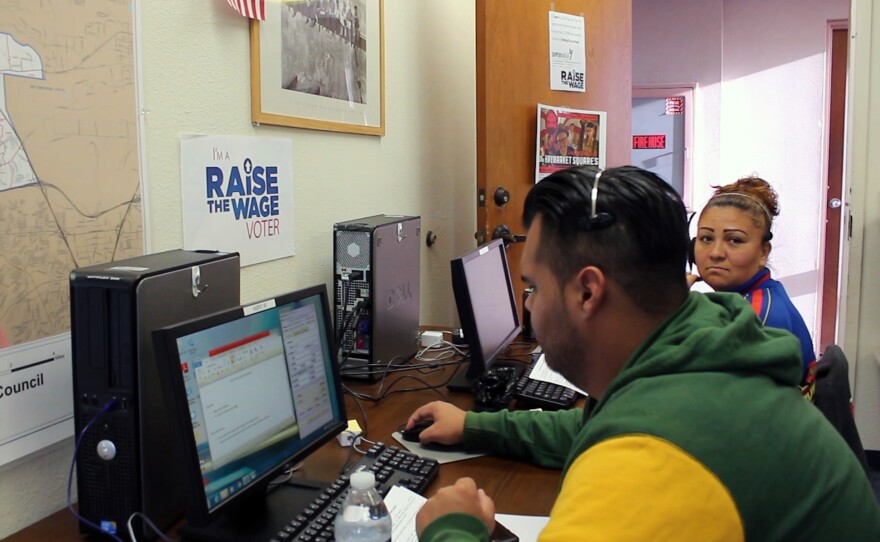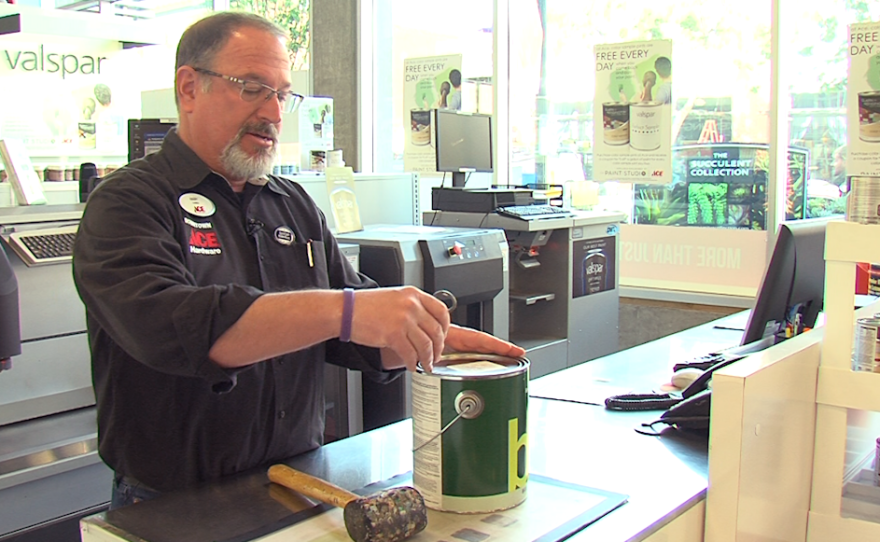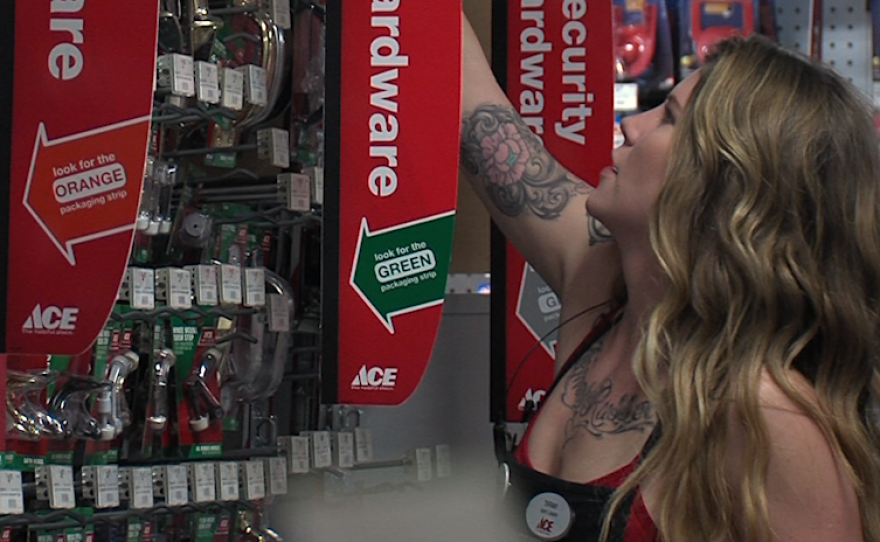The political clashes over San Diego's minimum wage increase from two summers ago have mostly quieted to a dull roar.
Back then, signature gatherers were asking registered voters to sign petitions for a ballot measure to force the City Council to rescind a decision to raise the minimum wage to $11.50 an hour by 2017. Protesters stood nearby with their own signs that read, "Don't sign it." There were accusations of signature gatherers lying, protesters stealing clipboards with signatures and a lot of yelling on both sides.
Now that the measure — labeled Proposition I — is on the June 7 ballot, the business groups that funded the signature-gathering campaign aren't putting effort into telling voters to vote "no" on it.
"There's an outside possibility, but I'd put it at 20 percent" that the groups will mount an opposition, Jason Roe said in an email. He's a political consultant running the anti-increase campaign.
So far, several groups have filed with the San Diego City Clerk's Office to campaign for the increase, and no one has filed to campaign against.
That's because of the state's decision to raise the minimum wage to $15 an hour by 2022 for businesses with 26 employees and more, and by 2023 for businesses with 25 or fewer employees.
San Diego’s local minimum wage increase would eventually be superseded by that larger bump, but that’s not slowing down a coalition backing the San Diego minimum wage increase.
Clare Crawford, executive director of the nonprofit Center on Policy Initiatives, which advocates for the working poor, said the local wage increase would come sooner, so it's still important.
“It would provide immediate relief for 170,000 San Diego working people,” she said.
If the San Diego measure passes, wages would immediately rise from $10 to $10.50 an hour, and then rise again to $11.50 an hour on Jan. 1, 2017. Crawford pointed out that amounts to $260 more a month for someone working 40 hours a week.
"For people who need it the most and are most likely to actually spend it locally here in our local economy," she said.
Crawford said even though the state measure will eventually bring wages even higher, San Diegans shouldn’t have to wait for their raises.
"Our elected council members passed this measure at the end of 2014, there were hundreds and hundreds of average working people who turned out to City Council, who called their members of council, called the mayor, asking them to support this measure, and they’ve been waiting since 2014 to see this raise," she said.

Meanwhile, one of the original supporters of San Diego's minimum wage increase now opposes it. Harry Schwartz has owned Ace Hardware in downtown San Diego for seven years and was part of a group that met with City Councilman Todd Gloria to reach a compromise minimum wage hike.
Gloria had originally wanted wages to rise to $13.09 an hour but agreed on $11.50 after talking with business owners like Schwartz.
Two years ago, Schwartz supported the increase.
"It was significantly higher than where the state minimum wage was at, which we felt was too low," he said. "We supported a minimum wage increase. We just wanted to make sure it was something small businesses were going to be able to handle."

But now that California has decided to raise wages across the state, Schwartz opposes the local increase.
"The San Diego initiative is irrelevant because we’ve got a state minimum wage in place that’s going to get where people want to be and keeps us competitive locally and statewide," he said.
Schwartz worries the local increase will put businesses in the city at a disadvantage, because surrounding cities can still pay the lower wage.
"It’s going to require price increases, there’s no question about it, we just don’t see any other way," he said.
For every dollar in wage increases, Ace Hardware needs a 5 percent increase in sales, he said. He hopes not to let any employees go.
"Ace being the helpful place, if we cut back on employees, we’re not living up to our brand promise," Schwartz said. "So the only other option is price increases."
But one of his employees, Tiffany Stephens, feels differently. During the four years she’s worked at Ace, her pay went from $9.75 to $12.50 an hour.
Even though it won't directly benefit her, she supports San Diego’s local minimum wage increase.
"It’s pretty hard with the wages and the cost of living making ends meet a lot of the time," Stephens said. "I work full time, and sometimes it’s still kind of a struggle."








